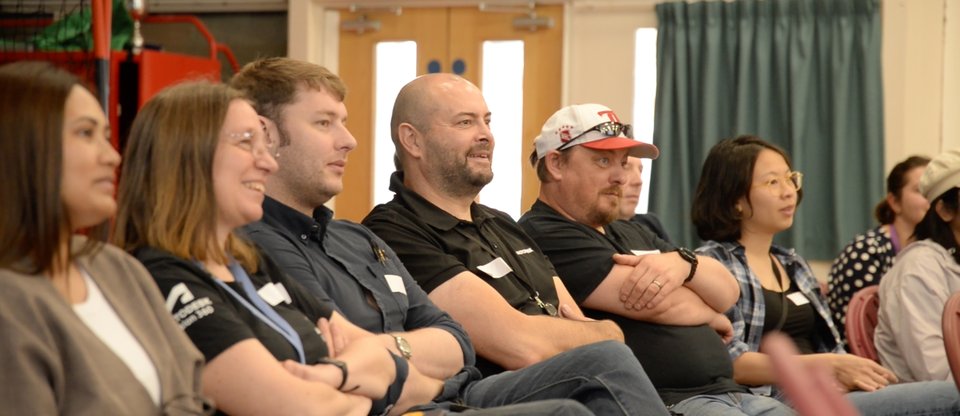Migration myth-busting: a joint project between Birmingham Citizens and the University of Birmingham
Migration myth-busting: a joint project between Birmingham Citizens and the University of Birmingham
Written by Minna Mohamed and Aisha Khan
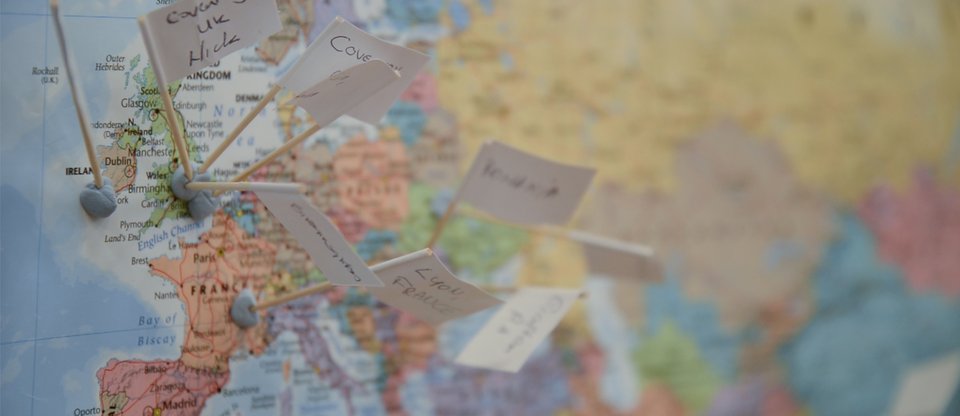
The 2024 UK riots underscored the profound impact of misinformation and myths circulating on social media. This prompted a national dialogue on immigration, integration, and the responsibilities of digital platforms in the modern information landscape.
As a migrant organiser, my role involves meeting with MPs and engaging them in our migration justice campaigns. But during our MP engagement in 2024, I met with several West Midlands MPs who all shared an interesting concern they are facing in their constituencies. All these MPs (Shabana Mahmood MP, Jess Phillips MP, and Warinder Juss MP) were saying to us that the amount of myths and misinformation regarding migration is rising in their constituencies and creating a real tension between different migrant communities. Such myths reported by the MPs are: asylum seekers receive a ‘’special treatment’’ and are treated better than citizens, newly arrived migrants can get a council house before others, asylum seekers crossing the channel are invading the country and putting so much pressure on services, etc.
Having heard this from three different MPs rang alarm bells for me and Saeed (my colleague in Birmingham). Therefore, we decided that as a next step, we need to plan something to address this issue. We thought of different ways to address this within member institutions where we think this could have an impact. But speaking with two MaRO leaders, Sara and Natalia from the University of Birmingham, we knew that we could do something bigger, more effective, and far-reaching if we applied for a research fund from the University. So, in December 2024, and with the support from Sara and Natalia, we applied for a Participatory Research Fund to train leaders to hold immigration myth-busting in their communities from a community-co-designed approach. The application was successful.
The project was for 6 months, starting from January 2025 to June 2025 and we immediately started working and identifying key leaders and institutions to be part of this project. Institutions involved are:
- Dream Chaser Youth Club (Birmingham)
- Ark Victoria Academy (Birmingham)
- St Clares Catholic School (Birmingham)
- Centrala (Birmingham)
- Bournville Village Trust (Birmingham)
- European Welfare Association (West Brom)
- Park Village Education Centre (Wolverhampton)
- Afghan Community Centre (Walsall).
Having such a diverse group of institutions from different parts of the West Midlands meant that we are hearing from a diverse range of communities, addressing the myths circulating in their neighbourhoods, and how they could tackle them. But also more importantly, we are developing those leaders to hold listening at their institutions and brainstorm ideas about how myth-busting could best function in their communities by using fact-checking techniques, and methodologies of gathering relevant and valid evidence and evaluating impact. By doing this, we are developing a flexible myth-busting toolkit that can be adapted for different community groups.
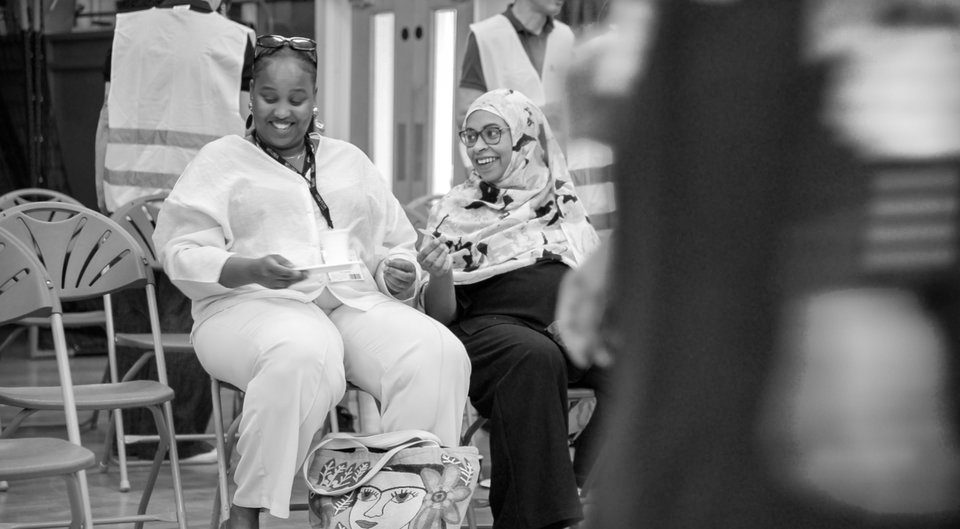
The myth-busting project was one of the key highlights of my year as an organiser. I learnt a lot about institutional development (identifying the organisation self-interest by conducting 121 with positional leaders and developing their leadership). The whole process was enjoyable and I had the privilege of attending some of these brilliant briefings organised and delivered by leaders. One example is below.
An example of a myth-busting session, run by Aisha Khan, Parent Governor, Ark Victoria Academy, Monday 16th June 2025
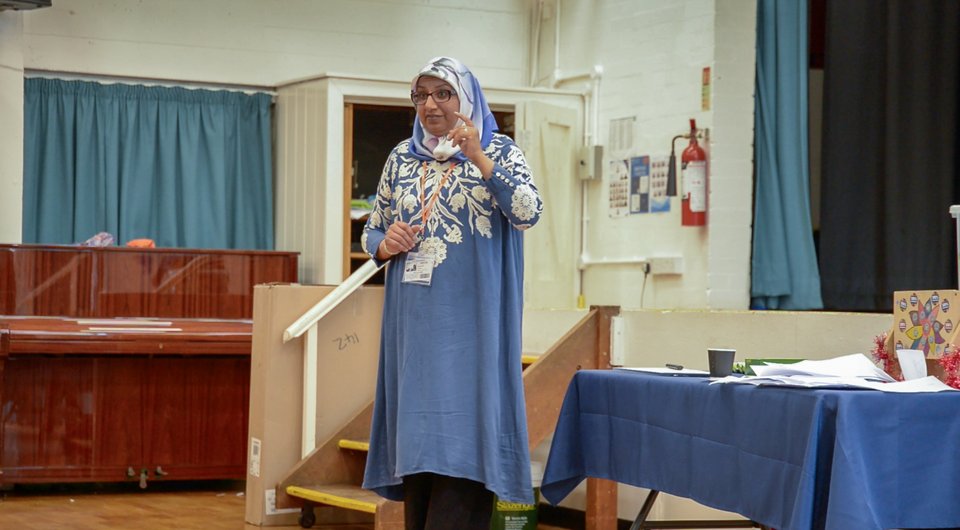
The Myth busting event was the culmination of many meetings with colleagues from our chapter and ad hoc meetings with Executive Headteacher of Ark Victoria Academy (AVA): Ela McSorley.
The most helpful meetings were the meeting at University of Birmingham which set the agenda for the event and a meeting where Ela and I planned our event based on the materials that we had received from Professor Sara Jones. We decided to use the tool of "Storytelling" to encourage attendees to open up about their own experiences and thereby bust some myths. We also planned to host a Community Litter Pick in order to change the narrative that migrants do not care about their environments and do not give back to society.
However, seeing the Myth busting event in action really set the bar for how the event should be conducted. I was lucky enough to observe Fatima conduct her Myth busting event at Dreamchasers Youth Club. Fatima really knew her target audience well and catered her questions specifically for them.
Unlike Fatima, I didn't know who would be attending (as attendance at Coffee Mornings is sporadic) and I was expecting some additional community guests to attend, so I really had to prepare hard. Ela and I had planned to engage in telling our stories, but as we didn't know who would be attending and their views, this was not going to be sufficient, so I had to devise another activity.
Our community guests were our neighbours on Talbot Way, the company: Autodesk. They had conducted a litter pick a few weeks ago, for which the school community were really grateful. Members of staff had expressed their gratitude by sending thank you emails, however, I decided to personally thank the staff, so the day after the litter pick, I waited until Autodesk gates were open and I ran into their building to thank their staff and build a relationship. I informed the Security Guard that AVA would be having a Community Litter Pick on 16th June and would they like to be involved in doing so. I left my email address and was contacted in due course.
I explained to our community guests that they would be invited to the Coffee morning in Refugee Week, where we would be storytelling and dispelling some myths, but they were unaware of what awaited them.
As not everyone at the Coffee morning was familiar with community building style, I approached the Coffee morning as if it were a lesson that I would teach in Geography. As a starter task, attendees were asked to write their initial thought when they heard the term "migration". They were then asked to anonymously place them in the Tombola box.
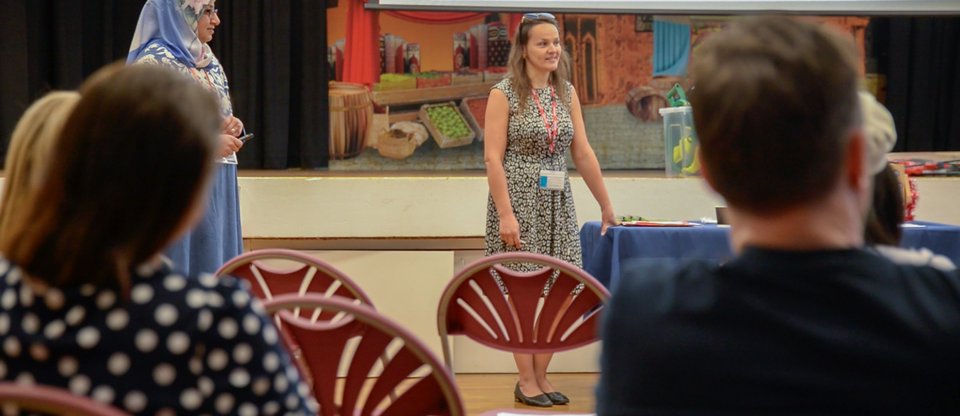
After settling everyone in with refreshments and going through the key terms (migration, Myth, types of migrant), I set about telling my personal story. Ela could not be present and Minna had not yet arrived, so I invited Natalia from UoB to speak about her experience of fleeing Ukraine and her experience of living in the UK. Both stories were contrasting one of forced migration and one of voluntary migration. Both stories provided food for thought.
As we were still getting to know our guests, I decided to address some of the myths that they had placed in the Tombola with facts that I had researched from Immigration lawyers websites, in addition to facts from BBC bitesize.
The audience were largely shocked by what they heard and realised that what we hear in the media should not be taken at face value. This moved in nicely to the contrasting images displayed on the screen of Small Heath of dumping and of cleanliness and of volunteers tidying up the local area. Those who could attend the Litter pick did so and then returned for the conclusion and evaluation. Minna was able to join us for this session and shared with the audience her journey to the UK as a refugee.
Having listened to all the stories, the leader of the group from Autodesk began to open up about his own situation. The event concluded with attendees completing the evaluation forms and visually displaying where they had come from on the world map. The aim was to highlight that we had all come from somewhere else but ended up in Small Heath. Similarly, we were united around a common goal that something had to be done about the rubbish.
The event concluded with some powerful stories and a new friendship built around a common goal. All in all, the Myth busting event was a great success!
